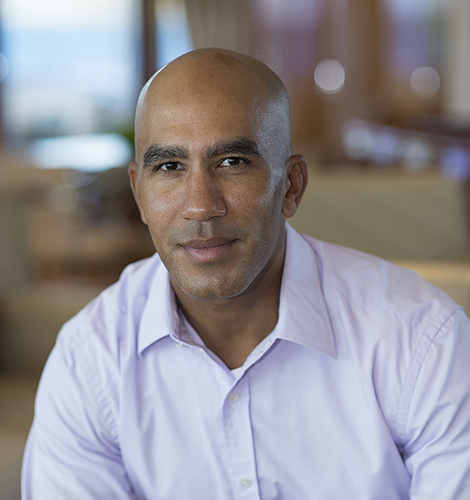Summary
Today I have Bill Perkins on the podcast who is the author of the very popular book titled “Die with Zero: Getting All You Can from Your Money and Your Life.” The book challenges a few core FIRE beliefs and has definitely had an impact on the way I’m modelling for my retirement.
Some of the topics we cover are:
- Who is Bill Perkins and what is he all about? (06:20)
- Why Bill wrote “Die with Zero” (07:42)
- The value of experiences fluctuating throughout life (12:05)
- Memory dividends (28:30)
- What about the kids? (36:26)
- What if I run out of money before I die? (43:02)
- What the FIRE movement gets wrong (55:45)
- Criticisms of the book (58:37)








If we’re going to apply “Die with Zero” in Australian context, what does it mean?
It would be the same everywhere. You would still invest, but with the goal of using up your income and capital in a way that results in you dying with nothing left. This could entail giving your kids money when they are about 30, helping them into a house purchase or setting up a trust for them, and investing and slowly eating away at the capital too as when you get to a certain age, in the 70s you will need less and less money to live because you will be unable to do the things you used to do while you were young.
I don’t think the principles in ‘Die with Zero’ are country-specific (except for annuities).
It’s basically optimising your wealth so you’re not working for extra money that you’ll never spend.
What an amazing interview!! One of your best. I am certain that coming across Bill and his philosophy on your podcast will transform not only the remainder of my 51-year old life, but also that of my own kids (when I let them in on the secret) and those around me. Thank you!
I feel exactly the same and I am very happy to burn down the capital to save me years of work especially here in Australia where we have the pension safety net that starts to top up your income once your assets drop below $800k.
The enjoyment of picking up the kids from school and kicking the footy or taking them to gymnastics is awesome.
The hardest bit is when I am not working (I work 6ish months a year) my son keeps asking “when are you going to get a job dad” and when I get a job he asks “when are you going to pick me up from school again dad” lol
Great interview Aussie Firebug – one of those things where it’s right time & right place in my life – thank you! It’s has made me stop, think and re-consider where I’m at. As I reach my number, after years of the grind & spreadsheets (and sacrifice), it’s very easy to get caught up in the numbers and accumulation (and despair as you question the point because its hard to get off this train). We all know you got to live too but Bill really does succinctly illustrates the lost opportunities driven by being on autopilot and missing out given certain experiences are best lived at certain times in life. Regret of not living is possibly the antidote I needed to the fear driven state of endless accumulation. I will be more conscious of this balance as a result and start saying yes to more – more life planning than accumulation planning…
Thanks Simon 🙂
It was an eye-opener for me too!
Thanks for the interview. I would love to know more about innuities and if I give money to my kids does it go in a trust or straight to them? And how much do I need to keep for myself to make sure I don’t run out.
Rennie – start here for the very basics (like I just did):
https://moneysmart.gov.au/retirement-income/annuities
I wonder how many children will not-so-subtly share this podcast or gift the book to their parents – looking for that early inheritance money 😀
It was great to listen to your pod and to see you doing new content. However, I am not sure I really got into this one. As a fellow Simpsons fan, I kept thinking of the charter Brad Goodman and that Simpsons episode while listening.
The story for me just felt too simplistic and lacked anything tangible or actionable. I think it is always going to be a popular message to tell readers to live in the now and delay gratification. No matter how you frame it. I also liked the fact you went through some of the criticisms.
I would love to know:
What changes (or potential) do you see yourself making to your fire plan from listening to the book?
What was it about the book that made you reach out and interview Bill?
I hope this is not too critical, as I love your pod and blog.
Thanks Nat.
Great comment and not too critical at all!
I don’t agree with everything in the book but there were parts that made me think a lot.
I’d suggest you read the book and not just listen to this podcast because the book explains things a lot better and goes into more detail. It’s also a pretty short read that’s straight to the point.
One of my biggest takeaways was the fact that we shouldn’t be building a portfolio to last forever. We should be building a portfolio to last until we die (or get as close to it as possible).
A lot of people would then say “but what about the kids or leaving some money to charity”. And there’s an entire chapter in the book that addresses this part (one of, if not the best chapter in the entire book).
I read it this year and the wife and I have already booked 3 international trips since.
We’re young, have no kids and have a lot of money.
I don’t want to waste my money of course, but as the book points out. There are certain experiences that are gone forever once you get to a certain age or level of health.
I want to experience parts of the world right now while I have enough energy and fitness.
The book really hammers this home.
There needs to be a fine balance between accumulation and experiences. And not all experiences are available forever.
Great interview.
In the end, it’s all about a balance in life. I’d never forgo the experience and opportunities and time to spend quality time with my kids, wife, parents and family, just so I could save and invest more and get higher return….
Money is a means to an end, after all.
Oh and to answer your questions specifically.
1. More travel earlier than I had planned for.
2. It was a fresh perspective and genuinely unique approach to FIRE. Up there with one of the most influential books I’ve read.
I found this podcast a bit of a weird one, too.
Because I’m late to the FIRE party, I just felt like Bill was advising us to live our lives almost like the way I had been living mine for the fortyish years prior to learning about FIRE – i.e. spending my money on things I want and experiences I want to do. Which is basically what everyone who isn’t a tightarsed FIRE-beast does, isn’t it?
But in saying that, considering the audience here is (presumably) living a frugal lifestyle, and many may have been on this path for a long time, I guess this really is a message that many in the FIRE community might need to hear – just a reminder that life needs to be enjoyed, to have balance and that the timeframe we have for doing some things is finite. (However, my impression of the FIRE crowd is, as AFB pointed out in the podcast, that most are not obsessively tight.)
Let’s remember that Bill did say that his book’s not really for people who need to know about optimising their finances, as there are plenty of others that do that better than his could. His message is for those savers who save too much and don’t DO enough. For these people his advice is about optimising the way they SPEND both their money and time. Looking at it in this way, I can see how to someone like AFB, Bill’s message every bit as revelatory Mr Money Mustache’s message is to a natural spender.
Good points Victor.
Die with Zero is a great book… but in the wrong hands, it could be disastrous. It’s almost tailor-made for the FIRE community I think.
I have not read the book, but I think what he’s suggesting is a bit different to what the average person is spending money on – which is mostly mindless if they take the time to think about it. The advantage that someone on the FIRE path is that they have the space to think more than the average person (though sometimes they don’t realise it) and figure out what they want to actually spend money on. I might give the book a read. But I suspect there is a lot in it that might annoy me!
Great thought provoking pod! Can’t say I agree with Bill on all his points. Anyone doing FIRE ‘correctly’ is a very intentional spender, not a cheapskate like he makes out.
His points about memory dividends and not getting the same yield out of experiences at different ages in our life is very interesting!
Thanks for the conversation Matt and Bill!
For sure!
The memory dividend is so unique. This book really changed the way I think about FIRE!
I’m not sure I buy the memory dividend thing completely.
Interesting that people seem to think doing something when a lot younger somehow has more value.
I get a lot more pleasure thinking about my recent Nepal trip than I do the one I made there 25 years ago.